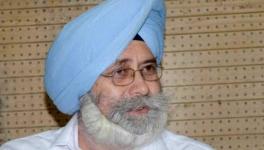Why India Needs More In-House International Legal Scholars
As of early 2000, visiting foreign leaders to India do not land and take off from New Delhi. Their visits have become more local, sometimes in Bengaluru, Ahmedabad and Mumbai, or in Trivandrum, Lucknow and Indore due to global investor summits, trade fairs and other exclusive industrial tie-ups. This shift from the country’s capital to state capitals is a classic case of cooperative federalism, globalisation and the moving goalpost of diplomatic relations.
In the past four years, the Central government has entered into more than 300 memoranda of understanding (MoUs) between various countries and international organisations that encompass every form of public policy that affects citizens. While the legal and treaties division of the Ministry of External Affairs (MEA) has made these documents public on its website as a treaty database, due to lack of a parliamentary legislation to ratify treaties, the drafting, seeking opinions, signature and performance of the agreement is a closed, non-transparent mechanism. How much of this information is made aware and by whom to people -- who are the real beneficiaries of such international agreements -- is suspect.
The Right to Information Act prohibits ‘disclosure that prejudicially affects relation with foreign state’ in an open and democratic society. To this end, the Constitution of India vests the power to enter and conclude treaties with the Central government as an exclusive executive act without being subjected to parliamentary approval. Given the ramifications of these agreements, such as imposition of taxes, amendment of laws to weaken local enterprises and create a more liberal, less regulated market and without any debate or discussion as a first step in Parliament, creates a huge vacuum in the nation’s governance transparency process.
The Canada Example
While the Government of Canada, being a similar common law country, has a comprehensive policy since 2008 to formally table all international legal instruments in Parliament by the Minister of Foreign Affairs, accompanied by a brief explanatory memorandum so that parliamentarians and public have sufficient information to assess the repercussions of the document before it is signed and duly consider any concerns raised by opposition parties.
On the other side, India does not make any such formal requirements to submit an international legal instrument to Parliament, except for a MEA note that is submitted as a natural bureaucratic act. The Attorney General is not required to approve or table any instrument less than a treaty in Parliament. While not having a policy as advanced as Canada’s, Congress leader Shashi Tharoor has argued that during his experience as an MP, the debates in Lok Sabha have ceased to be a healthy form of collective deliberation and instead follow the whip and vote to pass a Bill.
The National Commission to Review the Working of the Constitution (NCRWC), which submitted its report on March 31, 2002, highlighted these concerns and suggested measures where civil society and MPs have a say in what goes into the text of the treaty, but these were seldom adhered to. Articles 246, 253 and 73 of the Constitution give the widest powers to Parliament on the exclusive right to legislate with a widest amplitude of extending the power to negotiate and ratify on subjects beyond the Union List, that is encroaching into State List and Concurrent List. This unending centralised power simply means that an international agreement, whether it is bilateral or multilateral or with organisations, can directly extend to all the states, thereby breaching the basic structure of federalism. Some examples of this are signing the World Trade Organisation propelled-Trade Related Aspects of Intellectual Property Rights package that affects generic medicines, the Agreement on Agriculture that affects farmer’s minimum support price and Bilateral Investment Treaties that allow foreign investment.
MEA Circular on Agreements/MoUs
As a matter of fact, the latest MEA circular on ‘Standard Operating Procedures with respect to MoUs/Agreements with foreign countries’ dated April 2, 2018 states that ‘according to the Indian Constitutional scheme, making of international treaties is an executive act. A treaty is concluded with the approval of the Union Cabinet. It is not placed before Parliament for discussion and approval. However, where the performance of treaty obligations entail alteration of the existing domestic law or requires new enactment, it would accordingly require legislative action.’
Furthermore, the guidance note states that ‘while the key difference between MoUs and treaties is whether or not there is an intention to create legally binding obligations, Indian practice does not fully subscribe to this idea wherein the nature of the instrument is determined based on its contents and not on the basis of its title.’
One must understand that the above guidance is not issued as a rule mandated by a legislation but is an internal document. While it is assumed that due care is taken to ensure an adverse agreement is not drafted and enforced, not having a law to govern these executive actions makes judicial review by the Supreme Court nearly impossible. Even to give a purposive interpretation of MoUs, which have persuasive value, becomes a challenge as India is not a party to the Vienna Convention on the Law of Treaties, 1969, governing the laws and practices pertaining to treaties.
Given the rapidity of entering into MoUs as political expediency demands, such as to assist the safe return of displaced Rohingya refugees to the Rakhine state in Myanmar by constructing housing projects, as concluded in December 2017, or building railway lines between Bihar and Nepal, as concluded in August 2018, to counter China’s strategic railway advances to the hill country through Tibet or extradition requests related to Nirav Modi, Lalit Modi and Vijay Mallya through the Mutual Legal Assistance Treaty cases between India and the UK, are not just regional and national security concerns but are long-term diplomatic interests.
If any of the MoUs are not performed in a timely fashion due to any concerns as not all are legal obligations but fall under the umbrella of political and moral obligations, it leaves the Union of India in default. This creates a negative image at the international stage and calls for checks and scrutiny. Harmonising and modernising best practices that is similar to developed countries, if not in all areas but in securing legal interests, makes a fit case to exercise caution and due diligence in foreign policy interactions.
Lack of In-House International Lawyers
India has been a party to six cases at the International Court of Justice (ICJ), the principal judicial organ of the United Nations. The first case was against Portugal in 1960 over the right of passage to its former colonies of Dadra and Nagar Haveli, followed by four cases against Pakistan, the first in 1971 over suspension of civilian aircraft over Indian territory, second time in 1973 over 195 Pakistani prisoners of war being tried by India, and the third time in 1999 over shooting down of a Pakistani maritime aircraft over the Rann of Kutch as it entered India’s airspace, and the latest being the illegal detention of Kulbushan Jadhav in 2017 and one case against Marshall Islands on nuclear arms disarmament.
A simple perusal of the oral proceedings on the ICJ website reflect these facts: India hired the legal services of four foreign counsels in the Portugal case and two foreign counsels in the aerial incident case against Pakistan. Interestingly, Prof Alain Pellet from France, while serving as chief counsel for India in the aerial incident case, has consistently served as counsel in the Maritime Boundary Arbitration between Bangladesh and India at the Permanent Court of Arbitration at The Hague in 2014, in 2015, he served as counsel in the Enrica Lexie case at International Tribunal for Law of the Sea located at Hamburg, Germany between India and Italy, famously known as the Italian Marines case and again as chief counsel in the Marshall Islands case at ICJ in 2016.
While Indian lawyers conducted background case research, the final arguments were presented by counsels who were not Indian nationals. More so, our legal experts are either considered on an ad-hoc basis or are reduced to assistive counsel. If India lacks in-house international legal scholars to represent and settle disputes at international tribunals, it is only natural that it resorts to hiring foreign lawyers to argue as chief counsels where sovereign matters are at stake and costs immense taxpayer money as legal fees.
Shashank P Kumar and Cecil Rose empirically analysed lawyers arguing cases at ICJ between 1999 to 2012 and come to the conclusion that these foreign lawyers are overwhelmingly men from developed countries who typically are professors of public international law and constitute a small group. While gender imbalance is a cause of concern, membership in international professional circles, prior experience in pleading before the court and personal reputation as a track record are said to be the most visible factors in choosing a counsel for a country.
This lack of incapacity to find local talent or to hone our own legal team makes India appear internationally weak and dependent on non-national professionals. As Arun Sukumar has pointed out, western international relations and international law theory have been uncritically accepted and prescribed in Indian university curricula without developing a native version, making the subject appear borrowed and redundant. Because of its foreign origins, this discipline is taught scarcely and practiced by a few, making it elite and alienated at the same time.
Lavanya Rajamani at Centre for Policy Research argues that domestically the quantum and quality of legal advice is not optimum as the Legal and Treaties division of MEA is currently composed of 13 lawyers, of which only two have doctorates in international law and the rest possess only graduate degrees. Out of 13, only three are stationed at New York, The Hague and Geneva. This small team advises all ministries and departments of the Government of India on all contentious matters. Suffice it to say that for a country of 1.2 billion people, resource crunch is not a crisis that cannot be resolved.
Contrast this with mature democracies such as the US, the UK, Canada and Australia, which have large dedicated international law teams, spread across specialties and practice areas and ensure their governments are legally secured as they enter into long-term agreements. As India progresses forward and makes its presence felt globally, strengthening international law within the country and outside becomes crucial. As we continue to negotiate several important agreements such as water sharing between our neighbours, cross-border movement of resources and free flow of goods and services for better trade gains, laying more emphasis on this branch of law becomes ever more necessary, but only if people have a say in such matters.
The writer is an LLM Candidate, South Asian University, Chanakyapuri, New Delhi.
Get the latest reports & analysis with people's perspective on Protests, movements & deep analytical videos, discussions of the current affairs in your Telegram app. Subscribe to NewsClick's Telegram channel & get Real-Time updates on stories, as they get published on our website.
























